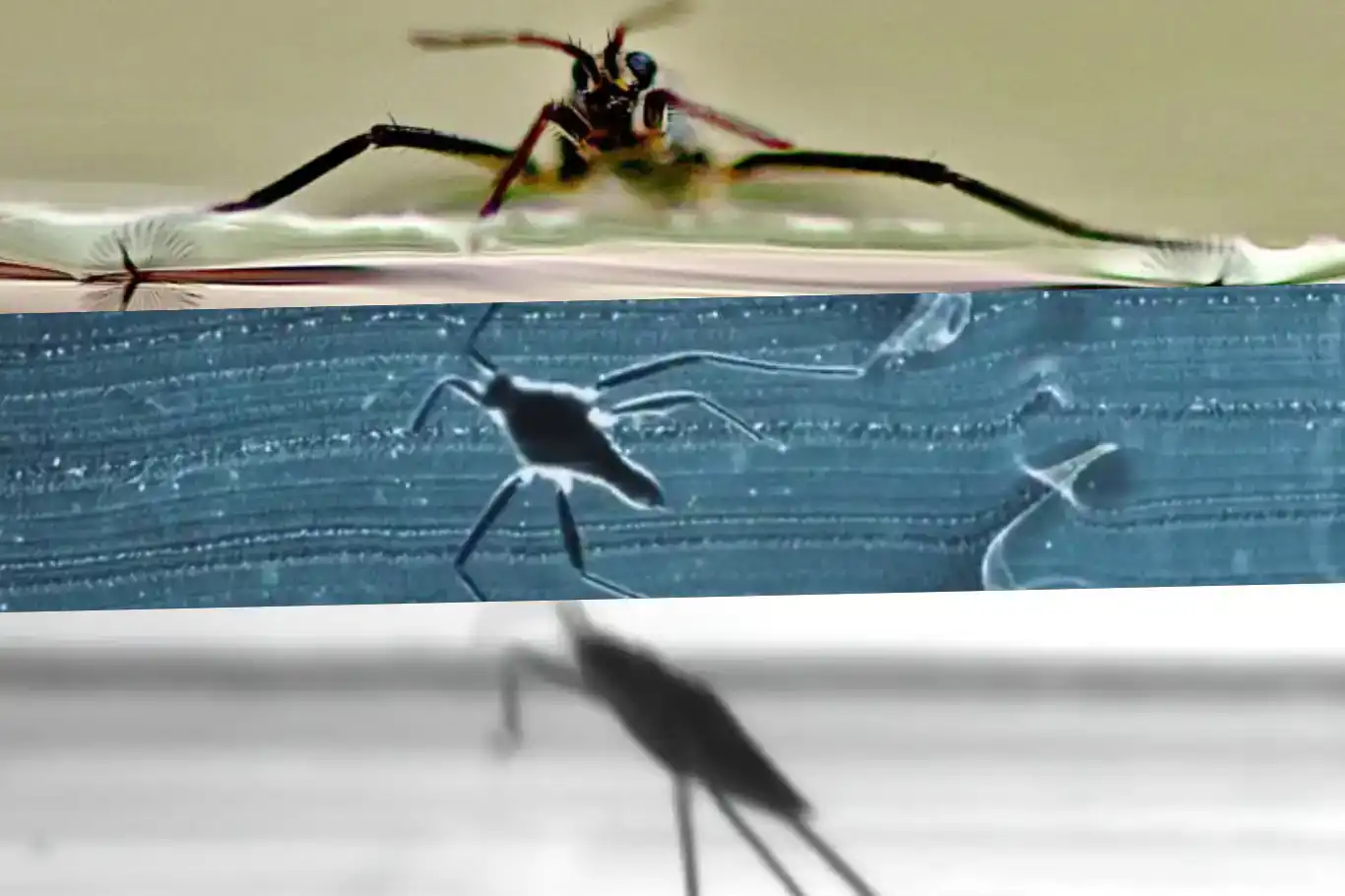Scientists develop water-strider-inspired mini robot for search-and-rescue missions


Researchers at the University of California, Berkeley, in collaboration with Ajou University and the Georgia Institute of Technology, have developed a self-balancing miniature robot inspired by a species of water strider, potentially transforming search-and-rescue operations and environmental monitoring.
The breakthrough was based on the mechanics of the ripple bug (Rhagovelia obesa), a tiny water strider known for its extraordinary speed and agility on water. These insects possess fan-like structures on their feet that open automatically upon contact with water and close when lifted, all without muscular effort. This natural mechanism is driven by capillary and elastocapillary forces, as water molecules cling to the fine hairs on the bug’s legs, allowing them to move swiftly and perform sharp turns in fractions of a second. Remarkably, ripple bugs can travel distances up to 120 times their body length, appearing to “fly” across the water.
Lead researcher Víctor Ortega Jiménez conducted experiments demonstrating the rapid motion of the ripple bug’s legs, observing that a detached leg could open in just 1/10,000th of a second when dipped into water.
Inspired by these biological principles, the team created a miniature robot, nicknamed “Rhagobot,” featuring fan-like legs that mimic the ripple bug’s movement. Unlike traditional flat-based aquatic robots, Rhagobot can execute sharper turns, glide farther with minimal force, and maintain balance autonomously on water surfaces.
The researchers envision deploying these robots for practical applications such as river and flood monitoring, environmental surveys, and search-and-rescue missions, offering unprecedented speed, maneuverability, and efficiency.
This innovation highlights the growing field of bio-inspired robotics, demonstrating how observing nature’s solutions can lead to cutting-edge engineering technologies capable of addressing real-world challenges. (ILKHA)
LEGAL WARNING: All rights of the published news, photos and videos are reserved by İlke Haber Ajansı Basın Yayın San. Trade A.Ş. Under no circumstances can all or part of the news, photos and videos be used without a written contract or subscription.
WhatsApp has introduced a significant policy update to its Business Solution Terms, effectively barring artificial intelligence (AI) companies from using its platform for developing or training AI technologies, including large language models, generative AI systems, and digital assistants.
OpenAI is facing sharp criticism from across the artificial intelligence and academic communities after claims that its GPT-5 model had “solved” ten of Paul Erdős’s famous unsolved mathematical problems were exposed as inaccurate.
Chinese aerospace company LandSpace marked a significant milestone in its quest to develop a reusable rocket, successfully conducting a static-fire test of its Zhuque-3 launcher on Monday, October 20.